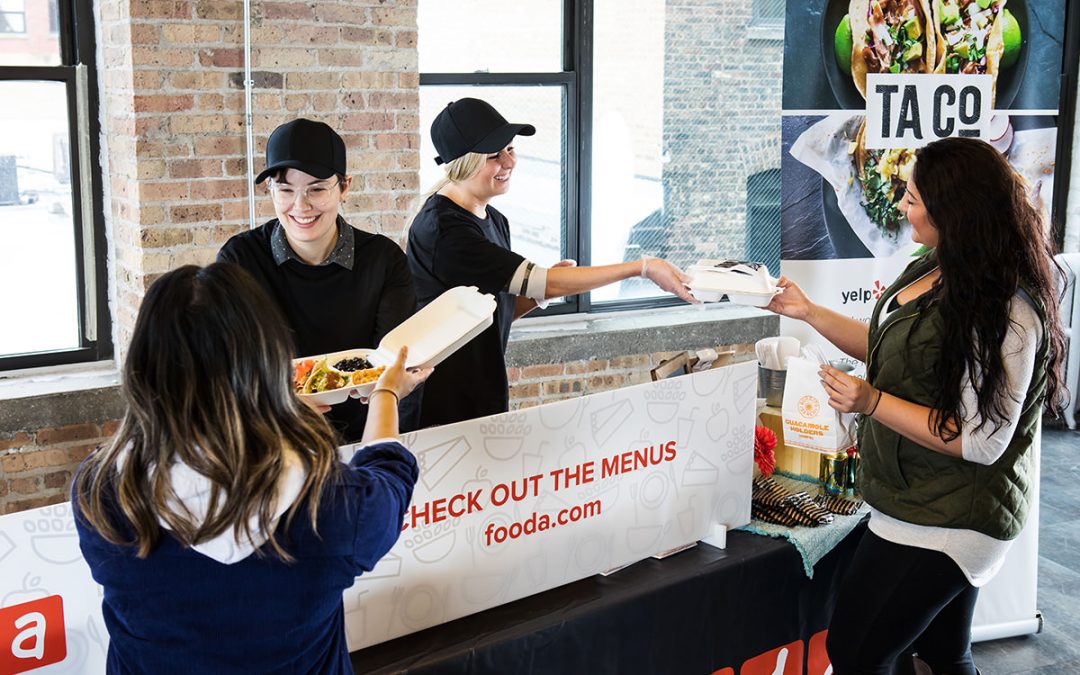
Orazio Buzza, CEO of Fooda
Fooda CEO Orazio Buzza knows all about the trend of employers using food as an enticement to lure workers back to the office. He’s all for it. He’s just not banking on it. Nor is he saying that it is the reason his company, which brings food from nearby restaurants into existing kitchen and dining spaces within workplaces, acquired Foodsby, one of its competitors.
“We made an assumption a year and a half ago that the percentage of employees returning to an office wasn’t going to change much,” he said in an interview. “We believe that hybrid work is here to stay. And we make decisions based on how the world is today, not how it might change over time.”
So if not to capitalize on evolving and advantageous return-to-office food norms, why Foodsby? Why now?
Easy. To get bigger. And smaller.
“Foodsby checked two boxes for us. One is its locations, which are different than ours. Its footprint is in second- or third-tier cities. And its product is a step removed from what we do. Foodsby has its own spin on it,” he said.
Part of the spin Buzza admires is Foodsby’s ability to create dynamic routes for drivers.
“With Foodsby, you can have as little as three to five people order from a building, and that route is part of a four- or five-building route in the same area. The routing is optimized for multiple stops with smaller orders, yet still with positive unit economics,” he said.
Plus the two CEOs just plain like each other.
“I met [Foodsby CEO] Ben Cattoor during the early stages of the pandemic and we’ve kept in touch,” Buzza said. “There’s always been a lot of mutual respect there. And as we put this deal together, I felt strongly about the culture fit. There’s a shared focus on workplaces and thinking about the consumer first. We both have a model where we work with restaurants; we don’t cook our own food. There’s just a lot of good alignment.”
Cattoor agrees. “We’re delighted to join forces with Fooda, a company just as passionate as we are about transforming workplace dining,” he said in a statement.
Where Fooda is finding growth
While Buzza isn’t relying on some return-to-work bonanza, he has identified trends he likes.
“Companies today are interested in developing food programs,” he said. “We saw that start to happen during the pandemic. Companies wanted to level up so they could compete on recruitment and retention. They increased their budgets in a pretty major way. This trend hasn’t slowed down and it’s something we believe will continue.”
And while Fooda’s sweet spot is traditional offices, it has been branching out into new workplace settings, such as hospitals, schools, and distribution centers. With Foodsby it is now operating in 50 cities.
In this hybrid world, Buzza feels Fooda has an advantage over legacy food-service companies.
“A lot of the traditional companies have high fixed costs,” he said. “We compete really well because we don’t.”
Foodsby will help provide flexibility.
“Some employers are seeing that people are coming in more during the middle of the week versus Mondays and Fridays. We can work with them to figure out an offering based on day of the week, size of the population, budget, any number of things. Foodsby adds another arrow in our quiver,” he said.


